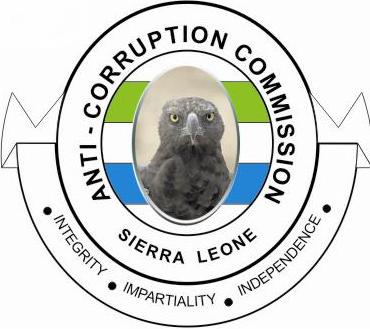By: Alhaji A.K Bangura, Senior Communications Officer, ACC
The Anti-Corruption Commission (ACC) of Sierra Leone was established in 2000 as a direct response to rampant corruption, which was recognized as a significant contributor to the decade-long civil war in the 1990s. After its establishment, Sierra Leoneans considered the Commission as a "Toothless Bulldog" primarily because the ACC initially lacked the legal authority and powers needed to effectively fight corruption.
The ACC was established without the powers to prosecute corruption cases independently. It had to rely on other agencies, like the Attorney General’s office, to carry out prosecutions, which often led to delays or cases not being pursued expeditiously. This limitation severely undermined the commission's effectiveness.
The first Anti-Corruption Act of 2000 did not provide robust mechanisms to investigate, seize, or interdict corruptly gained assets. It also lacked provisions to compel public officials to declare assets or to sanction those who failed to comply.
The Commission did not have sufficient investigative powers or resources to conduct thorough inquiries into corruption allegations, making it difficult to gather evidence for prosecution. Due to these legal and operational constraints, the ACC struggled to make a meaningful impact in the fight against corruption, leading to public perception that it was ineffective or powerless despite its mandate.
This situation changed dramatically after the 2008 Anti-Corruption Act amendment, which granted the ACC prosecutorial powers pursuant to section 7 (1) (d), strengthened asset declaration pursuant to section 119, and equipped it with tools to better investigate corruption.
Since then, the Commission has become more assertive and effective, shedding the "Toothless" reputation. This is more so under the leadership of Francis Ben Kaifala Esq.
Since his appointment as Commissioner of the ACC in June 2018, Mr Kaifala has had a profound impact on the agency's effectiveness and the country’s fight against corruption. He initiated and championed the amendment of the Anti-Corruption Act in 2019 to broaden the ACC’s mandate and powers. This included the establishment of a Special Anti-Corruption Division in Sierra Leone’s High Court to expedite corruption trials, ensuring faster justice delivery.
Under his leadership, the ACC prosecuted numerous high-profile government officials and public servants, sending a clear message that the fight against corruption is not a “Toothless Bulldog” as it was before.
Sierra Leone’s corruption perception improved significantly under Mr Kaifala’s leadership. The country moved up notably in the Transparency International's Corruption Perception Index and the U.S Millennium Challenge Corporation (MCC) scorecard, demonstrating a decline in corruption and better governance.
Mr Kaifala also strengthened the national asset declaration system, requiring public officials to declare income, assets, and liabilities upon assuming office and periodically. This system has been digitized and enhanced to track illicit wealth and promote integrity in public office.
The Asset Declaration Regime is a preventive measure against corruption. Public officers, especially those from grade 7 and above and others with fiduciary responsibilities, are required by law to declare their assets, income, and liabilities upon assuming office and periodically (after every two years) or on leaving office. Since 2019, this declaration process has been digitized, allowing public officers to declare assets online through the ACC’s platform. The ACC examines these declarations, investigates suspicious cases, and prosecutes defaulters to promote transparency and integrity in public service.
Another significant stride made by the ACC under his leadership is the recovery of billions of (old) Leones of stolen public funds, using innovative strategies like the non-conviction asset forfeiture to reclaim corruptly acquired assets.
Due to his tremendous efforts in the fight against corruption, he has been globally and locally recognised, including awards by the US State’s Department as International Anti-Corruption Champion, African Achievers Awards, Public Servant of the Year, among several others. The Commission itself has received recognitions as ‘Public Institution of the Year’. Today, we can proudly say that the Commission has transformed from the toothless bulldog it was known for to a fierce watchdog, thanks to Mr Kaifala’s pragmatic leadership.




